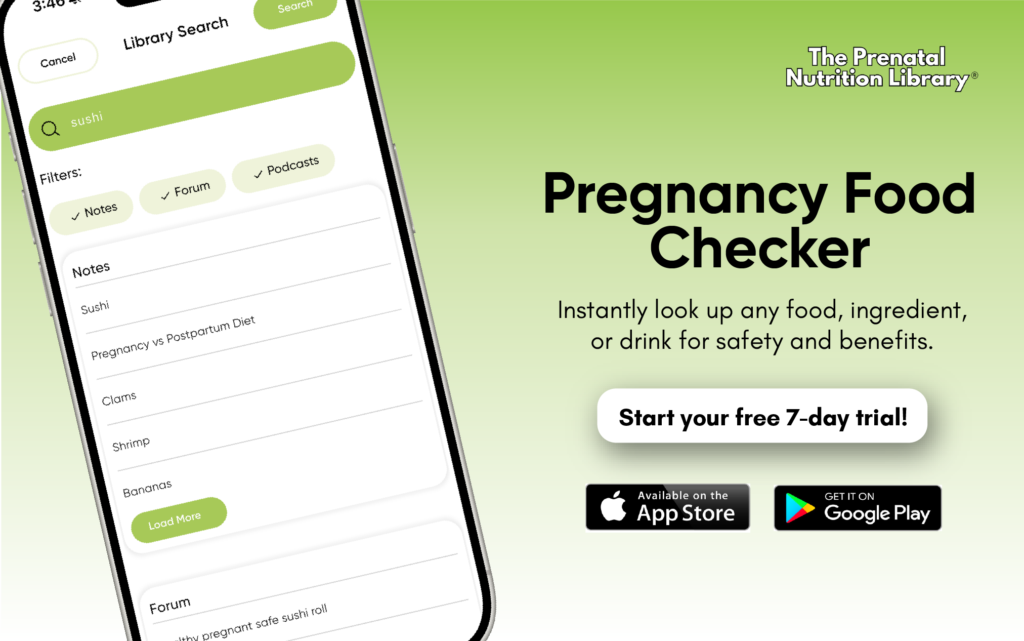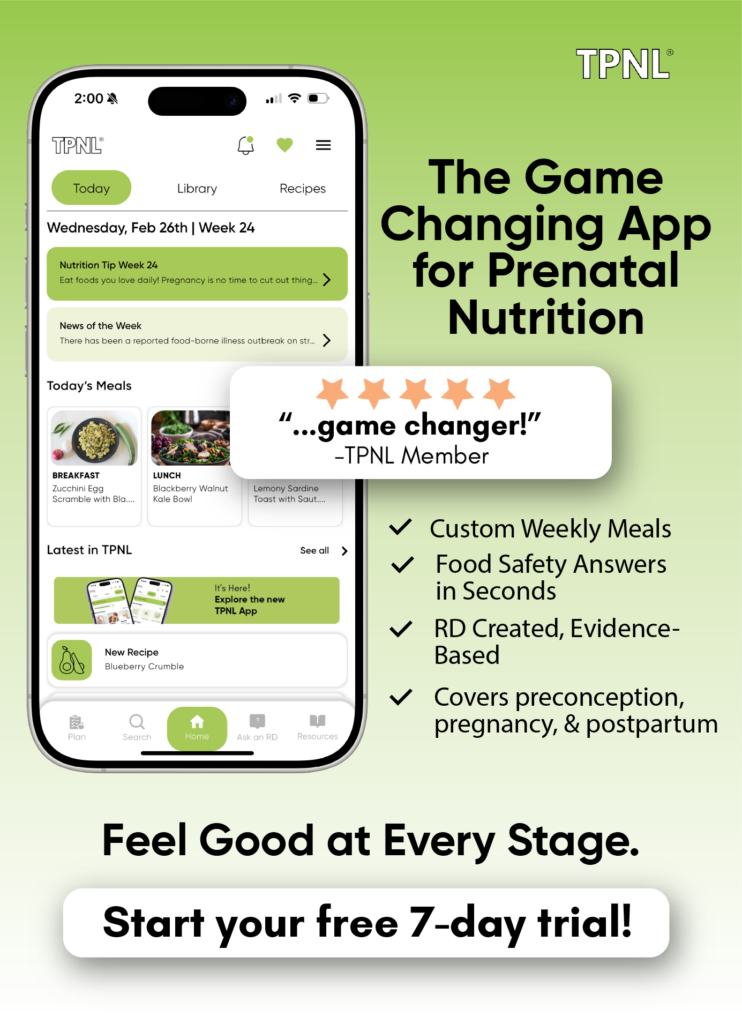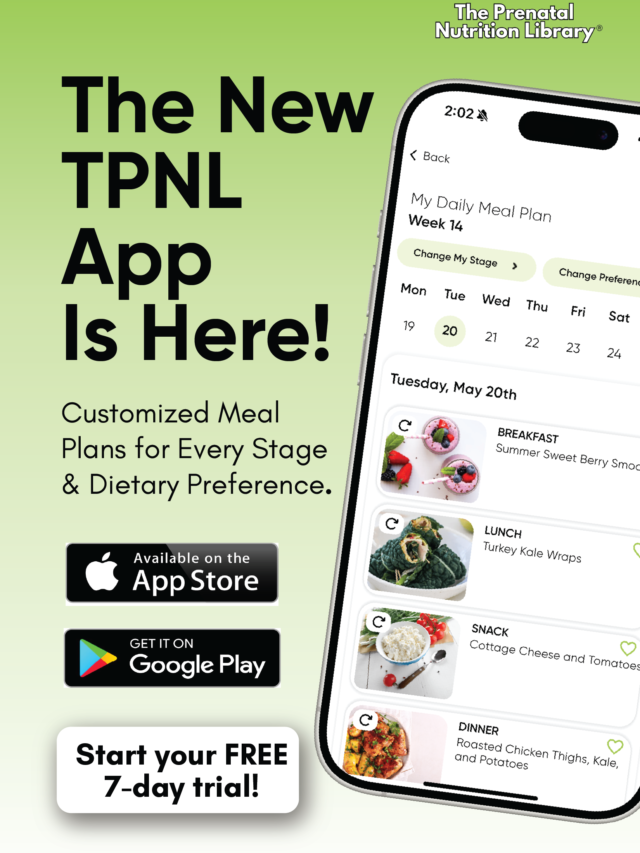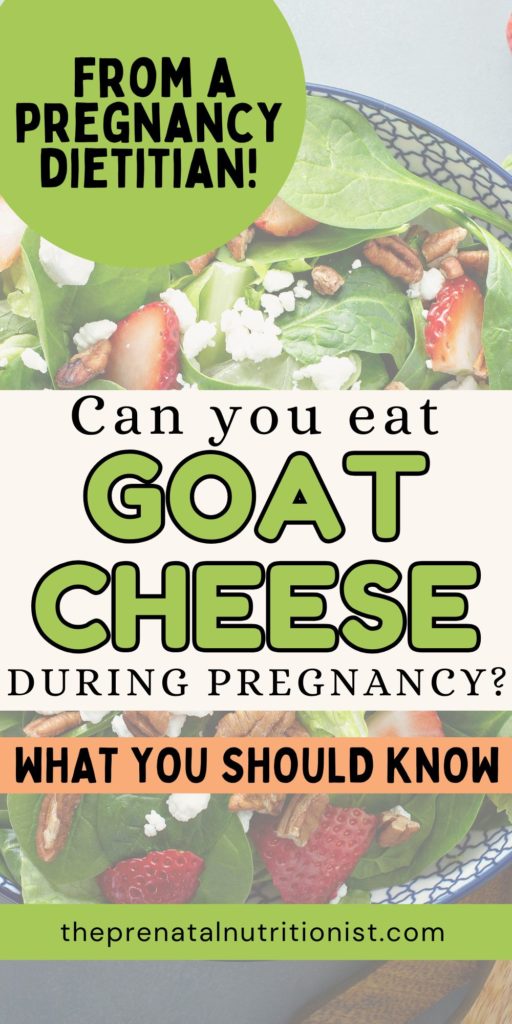
Whether or not goat cheese is safe for pregnant women to eat depends on the type of cheese and how it is made. Some types of goat’s cheese are considered “higher risk” for expectant mothers, while other varieties are considered to be safe for pregnant women.
The type of goat cheese produced depends on how the goat’s milk is prepared. Any goat’s cheese that is made with unpasteurized milk is recommended to avoid during pregnancy. This is related to food safety. Soft cheese has higher levels of moisture, which is an environment that bacteria love to grow in. Common types of soft cheese include brie, chevre (goat), ricotta, cream cheese, and camembert.
These types of soft cheese can be safe to enjoy during pregnancy when they are pasteurized. Mold-ripened goat cheeses are safe to enjoy during pregnancy when cooked before eating.
Unpasteurized, soft goat cheeses are recommended to avoid during pregnancy because they’re more likely to contain harmful bacteria. One of the biggest risks for pregnant women is the potential exposure to the bacteria Listeria monocytogenes, which can cause listeriosis. Choosing goat cheeses made from pasteurized milk significantly reduces the risk of foodborne illness.
Although listeriosis is rare, approximately 1,600 Americans contract the foodborne illness annually. There are about 331 million people in the United States. According to the FDA, pregnant women are ten times more likely to get sick with listeriosis. The effects of this condition on expectant mothers range from symptoms like diarrhea to miscarriage in the most severe circumstances. Again, this is serious, but also, overall, very rare.
The good news is that many types of goat cheese are safe to eat during pregnancy.
Hard goat cheeses are also generally considered safe for pregnant women. They contain significantly less moisture than soft cheeses, which makes it hard for harmful bacteria to flourish. Hard cheeses, like goat gouda, have a hard rind and are also a good source of calcium.
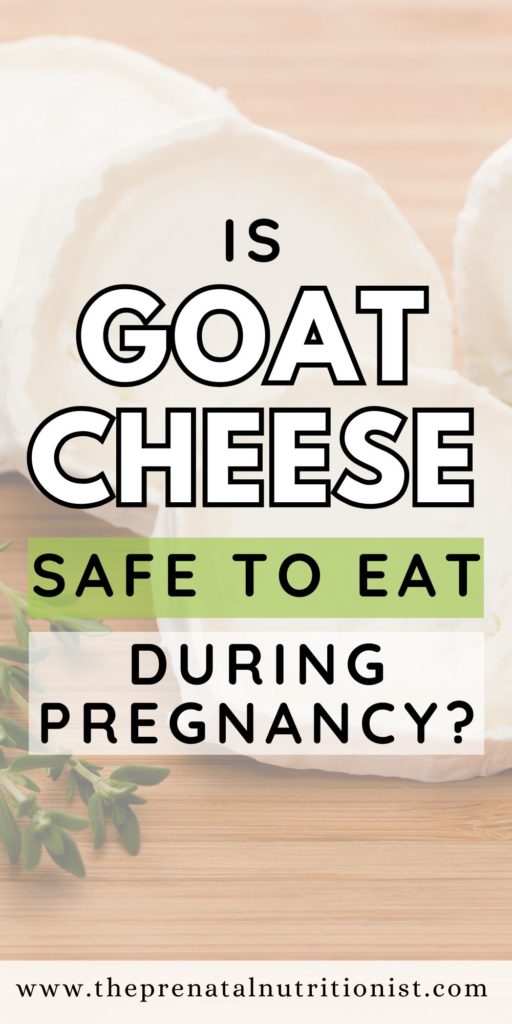
Can You Eat Goat Cheese While Pregnant?
Cheeses made from pasteurized milk, including pasteurized goat milk, are considered safe for pregnant people to consume. If, for example, you’re putting together a pregnancy-safe cheese board and you want to include goat cheese, gouda, and cheddar cheese made with pasteurized goat milk, they are all great options. You can also safely eat feta cheese if it’s made from pasteurized milk, making it another flavorful and pregnancy-friendly choice.
You can also include blue cheese if you’re able to get your hands on Cayuga Blue or Bleuet de Chèvre. Just be sure to check the label to ensure they’re made with pasteurized goat’s milk. (You can read more in my post “Can You Eat Blue Cheese While Pregnant?”)
Unpasteurized cheeses aren’t automatically “unsafe.” However, they are considered to be a higher-risk choice as they are more likely to grow a germ and have the potential to cause foodborne illness. It’s best practice to avoid raw cheese or unpasteurized cheese during pregnancy, including unpasteurized goat cheese.

Is Goat Cheese Pasteurized?
Raw or unpasteurized milk can harbor dangerous bacteria like salmonella, E. coli, campylobacter, or listeria. The good news is that most goat cheese sold in grocery stores is pasteurized and safe for pregnancy.
However, some farmer’s markets sell goat cheese that hasn’t been pasteurized. Regardless of where you shop, always check the label before purchasing and consuming goat cheese.
In the United States, the most common pasteurization method is High-Temperature Short Time (HTST) pasteurization. This method uses metal plates and hot water to heat the milk to temperatures of at least 161° F for at least 15 seconds, followed by fast cooling.
Other methods of pasteurization include Higher Heat Shorter Time (HHST), which uses different equipment, higher temperatures, and less time, and Ultra Pasteurized (UP), in which the milk is heated to at least 280° for two seconds.
Cheese made with pasteurized milk is safer for pregnant people because the pasteurization process uses heat to kill potentially harmful bacteria.
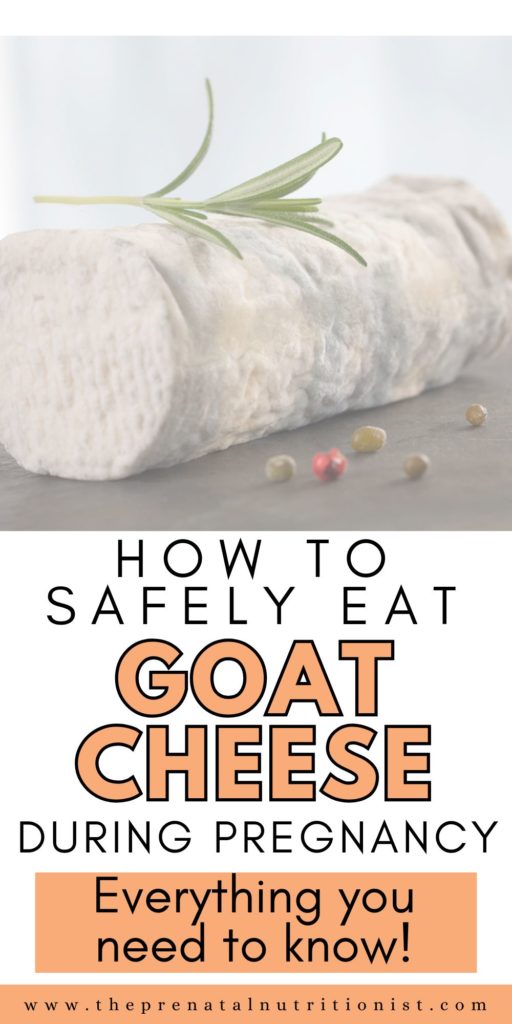
How To Eat Goat Cheese During Pregnancy?
Always Choose Pasteurized Goat Cheese
The safest types of goat cheese for pregnant women to eat are varieties that are made with pasteurized goat’s milk. Avoiding unpasteurized or raw goat’s milk cheeses significantly decreases the risk of foodborne illness.
Consume Cooked Goat Cheese
Another way to reduce your chance of contracting a foodborne illness from bacteria in goat cheese is to cook it. Cooking goat cheese, either by frying, baking, or grilling, kills harmful bacteria, including Listeria.
According to the CDC, cheese should be cooked to an internal temperature of at least 165° F to kill bacteria. Generally, as long as the cheese is cooked until steaming hot, it’s safe to eat during pregnancy. Again, this is an option or a way to make unpasteurized cheeses safe. Pasteurized goat cheese does not *have to* be cooked to be safe to enjoy unless you want to cook it.
Pregnancy-Safe Goat Cheese Dishes
One of the most popular ways to use goat cheese is to put it on a homemade pizza. DIY goat cheese pizzas are completely customizable, meaning you can pile on all your favorite toppings. Plus, since the goat cheese is cooked thoroughly, goat cheese pizza is safe to enjoy during pregnancy.
For a bit of an indulgence, try some homemade goat cheese balls.
You can also find a ton of delicious and healthy pregnancy-safe recipes in my cookbook.
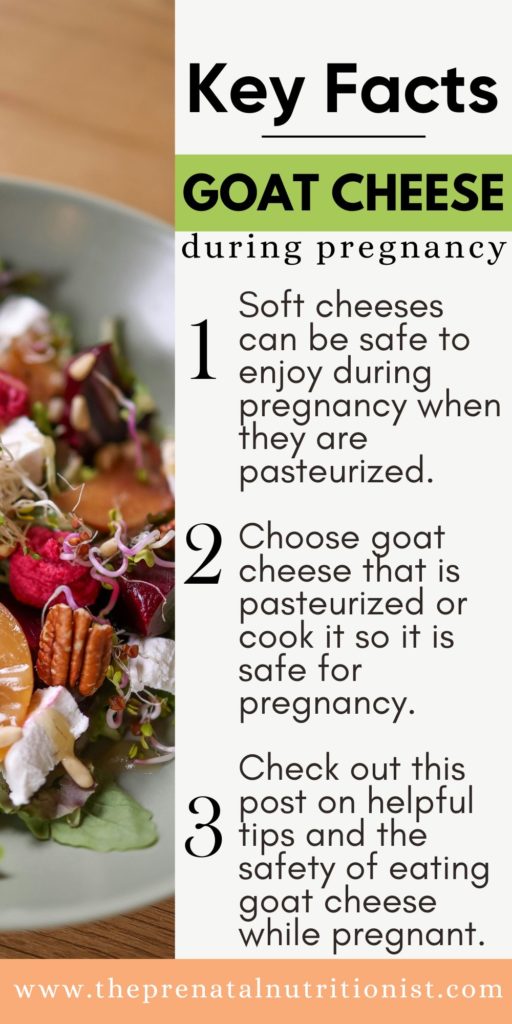
Pregnant women can safely enjoy goat cheese in a variety of nutritious ways for pregnancy!
There are a lot of nutritional benefits to consuming goat cheese during pregnancy. The best practice is to choose pasteurized goat cheese and/or fully cook cheese prior to eating to protect both mom and baby from foodborne illness.
For more evidence-based guidance on pregnancy nutrition, sign up for The Prenatal Nutrition Library, our searchable pregnancy nutrition app that also includes trimester-specific meal plans. Easily search thousands of nutrients, foods, and supplements for a quick, CLEAR answer to your important questions. You’ll get a FREE one-week trial when you download the app!

